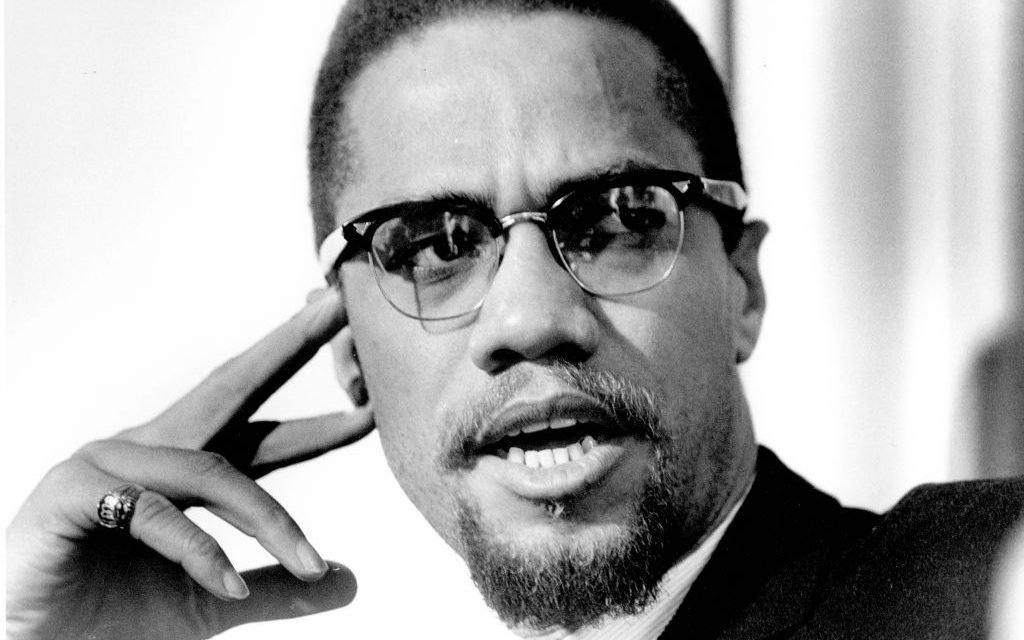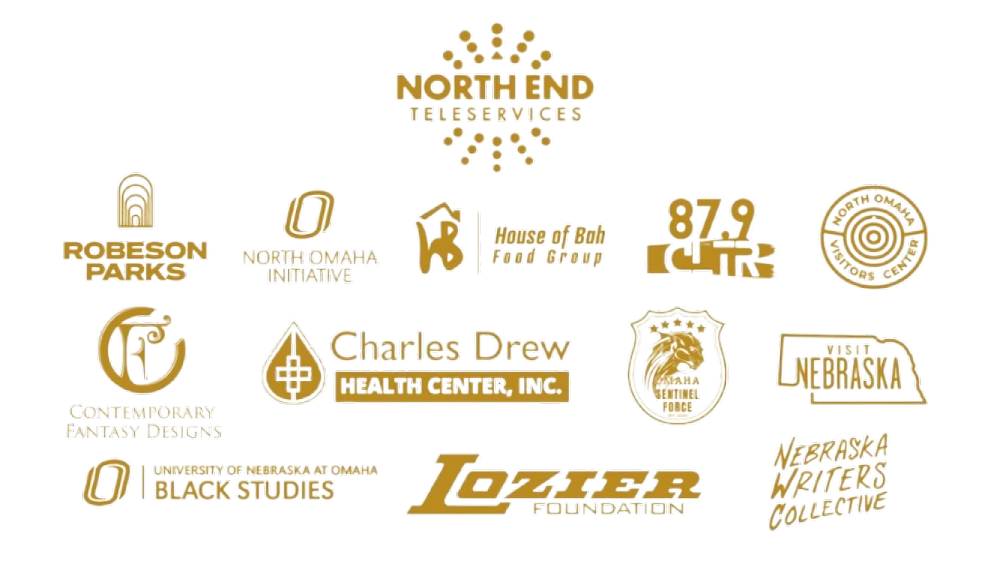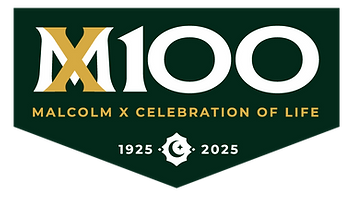Omaha, Nebraska • May 15 – June 1st, 2025
MX100
MALCOLM X CELEBRATION OF LIFE
Presenting Sponsor North End Teleservices
Omaha, Nebraska • May 15 – June 1st, 2025
MX100
MALCOLM X CELEBRATION OF LIFE
Presenting Sponsor North End Teleservices

celebrating 100-Year Legacy of El-Hajj Malik El-Shabazz,
Malcolm X

Malcolm X Day: History
In the spring of 1968, barely a month after Malcolm X’s tragic assassination, a small but determined group of Omaha activists issued the city’s first call to mark his birthday as a day of remembrance. The Congress for Racial Equity (CORE) formally petitioned for a national holiday, and in 1969 Omaha’s Black Panthers and the grassroots organization BANTU urged North Omaha students to “take the day off” and gather instead for what they christened “People’s Picnic” at the newly renamed Malcolm X Park. Hundreds of young people heeded the call—skipping school, collecting donations from local Black-owned businesses, and launching what would become an annual celebration for more than fifteen years.
Behind those early street‐corner gatherings stood one singular figure: Rowena Moore. In 1971, using her own savings, Moore founded the Malcolm X Memorial Foundation (MXMF) to institutionalize the remembrance of the man born Malcolm Little on Omaha’s North 24th Street in 1925. Moore’s vision went beyond picnics; she dreamed of erecting an educational and cultural center on the very site of his birth home. Under her stewardship, the Foundation staged lectures, exhibits, and vigils every May 19th—insisting that Omaha claim its native son before the rest of the nation would.
Through the 1980s and ’90s, MXMF events waxed and waned with the city’s political winds, but a new burst of energy arrived in 2002 when Dr. Robert Chrisman, chair of the Black Studies Department at the University of Nebraska–Omaha, inaugurated the annual Malcolm X Festival on campus. Supported by a $75,000 challenge grant from the Sherwood Foundation in 2011, the festival attracted scholars, poets, and civil‐rights veterans—turning North Omaha each spring into a hub of films, panel discussions, and youth poetry slams.
By the time Malcolm X would have turned 100 in May 2025, the city’s official recognition finally caught up. In early May of 2025, Mayor Jean Stothert issued a formal city proclamation honoring May 19th as Malcolm X Day—an honor the Council reserved for only the most distinguished hometown figures. Residents gathered at the MXMF headquarters to hear speeches from Malcolm’s daughter Ilyasah Shabazz and to tour a new oral‐history exhibit on his family’s flight from Ku Klux Klan threats in the 1930s.
That same year, in Lincoln, Senator Terrell McKinney—one of only two Black legislators in Nebraska’s unicameral body—successfully amended a bill honoring Missing Persons Day to include recognition of Malcolm X’s birthday. Though the measure stopped short of creating a paid state holiday (due to estimated costs exceeding $500,000 annually), it secured May 19th as a day for schools and state agencies to “conduct exercises in honor of El-Hajj Malik El-Shabazz,” calling out generations of Nebraskans to reflect on his legacy. Governor Jim Pillen later unveiled a bronze bust of Malcolm X in the Nebraska State Capitol, marking the first time an African American graced the Hall of Fame’s marble halls.
From impromptu picnics and street‐corner rallies to university festivals and state‐level proclamations, Omaha’s observance of Malcolm X Day reveals a story of grassroots determination overcoming political hesitation. What began as a call for students to skip school has grown into a multi-venue, inter-generational tradition—uniting history, scholarship, and community in a yearly affirmation that the city will never forget the boy born Malcolm Little nor the man he became.
mx100 events
THURSDAY
MAY 15
OPEN HOUSE & pRESS cONFERENCE
Join us at the Historic Marker for public announcements about our Museum Project, MXMF program updates, and a public open house at the birthplace of Malcolm X in the Heart of North Omaha.
*Free to Public
FRIDAY
MAY 16 –
JUNE 1
Nebraska Hall of Fame Bus Tour
Take a historic bus tour to our State Capitol Building in Lincoln, Nebraska to view the Malcolm X Bust in the Nebraska Hall of Fame. On the way, learn about the life of Malcolm X, and his work in social justice, economic independence and civil/human rights. This tour is in partnership with UNO Black Studies Department, North Omaha Initiative and Preston Love’s North Omaha Legacy Tours.
FRIDAY
MAY 16
Meeting of the Minds Symposium
Experience a dynamic exchange of ideas with Dr. Khalid el-Hakim of the Black History 101 Mobile Museum, Barry Thomas on the MXMF Curriculum, and a special session | uncovering the legacy of Rowena Moore. Engage, learn, and be inspired.
FRIDAY
MAY 16
Youth Poetry Night
Join us for an inspiring evening of bold expression and rising voices as young poets honor Malcolm X through spoken word. Featuring youth vocal performance, an open mic, food trucks, and a poetry book giveaway by Aja Monet.
*Free to Public
SATURDAY
MAY 17
Community Block Party
Come check out local vendors, artists, food trucks. Enjoy a special musical performance by recording artist Dead Prez.
*Free to Public
Interested in becoming a vendor? Sign up before spots fill up.
MONDAY
MAY 19
Meeting of the Minds: Global Broadcast
Join us for a full schedule of virtual dialogue with scholars and activists celebrating Malcolm X across the Globe! Cities to be represented include: Detroit, Chicago, Oakland, Dallas, Harlem, Grenada & of course OMAHA!
*Virtual Event
FRIDAY
MAY 30
FILM Screening: Divisible
A free public screening of DIVISIBLE, a documentary film focusing on the history and current impacts of redlining in Omaha.
*Free to Public
SATURDAY
MAY 31
Legacy Gala
Join us for an evening of community, culture, art and history, as we celebrate the life and legacy of El-Hajj Malik El-Shabazz, Malcolm X. With special guest performances by Aja Monet and Mike Phillips; The Xtet (Jazz Quartet); and Dana Murray; Special Guest MC: Felicia Casher
Sponsors



